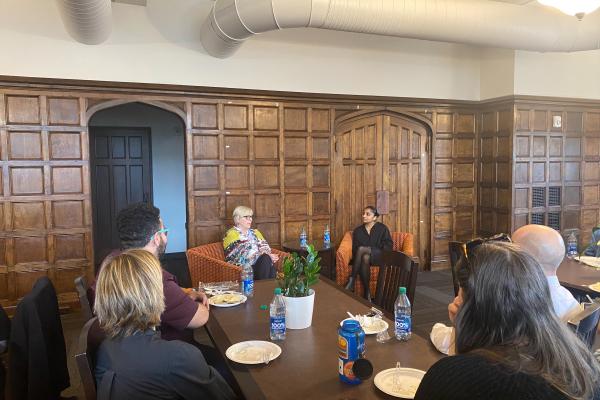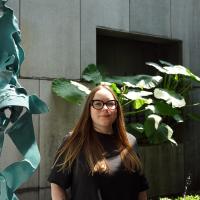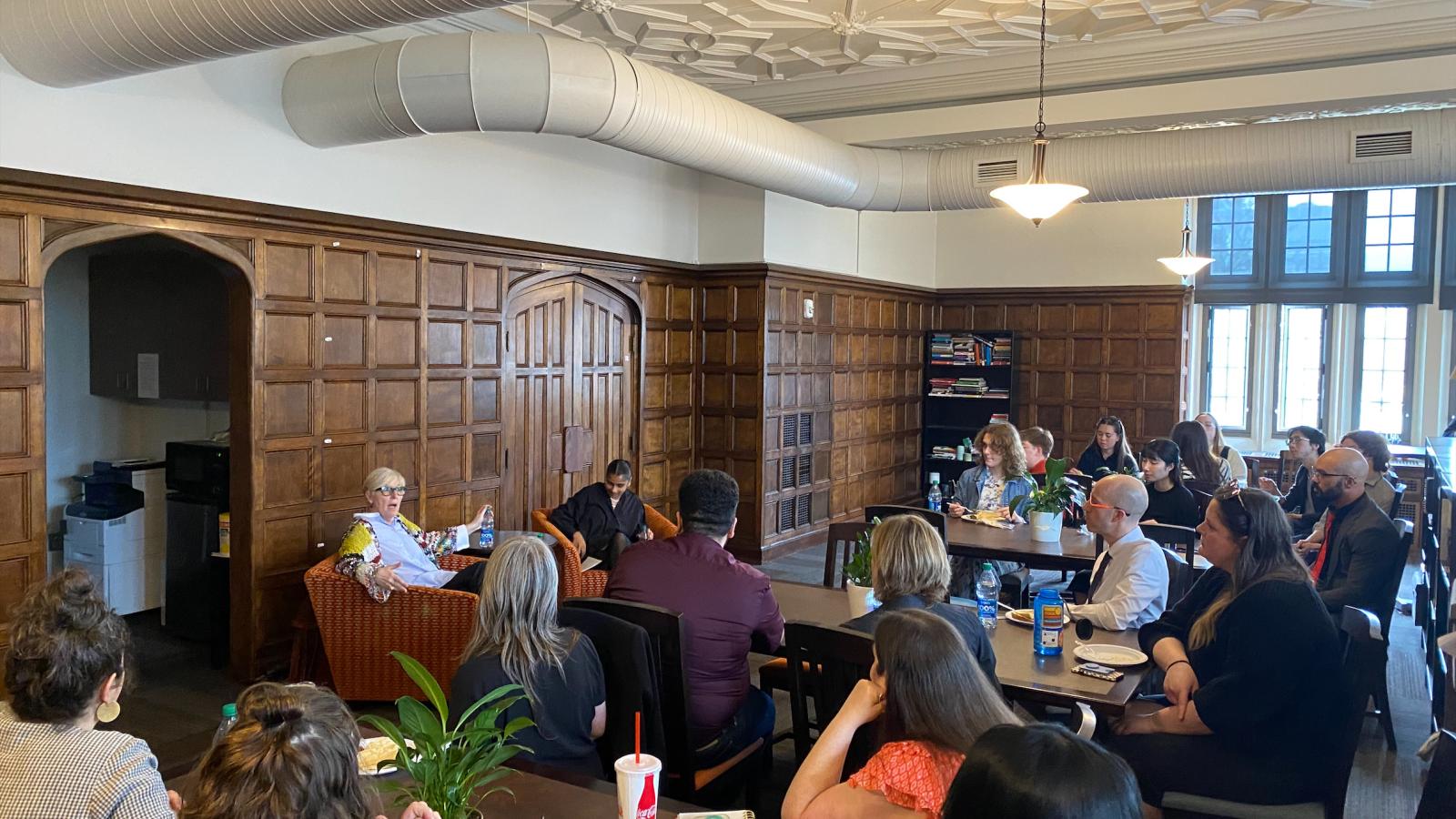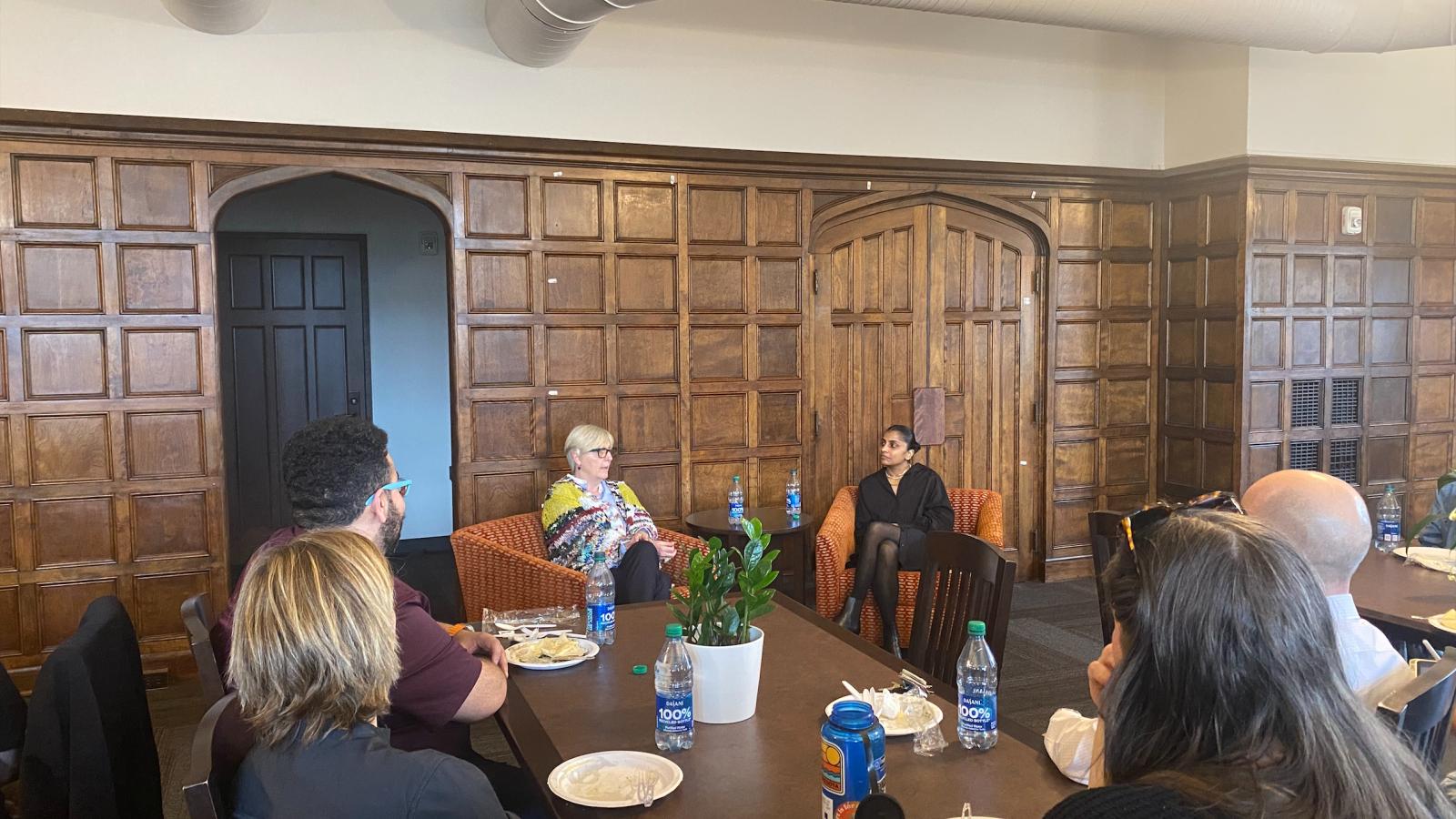Field Notes: April Riddle, PhD Student, Reflects on Helen Molesworth’s Visit

To highlight the department’s engagement with contemporary curatorial practice, we host and co-host events throughout the year that feature well-known curators and practitioners in the field. To document these events and open broader opportunities for engagement, we present “Field Notes,” where graduate contributors offer their reflections on these events. Our first feature comes from April Riddle. April Riddle is a PhD student and member of the Task of the Curator club in the History of Art Department. Her research areas include modern and contemporary art, with a focus on new media. She is currently writing her dissertation which explores artist-produced games that take place both on and off screen and the entangled histories of video games and financialization.
On March 5, curator and writer Helen Molesworth visited Ohio State’s campus. Before discussing her new book, Open Questions: Thirty Years of Writing about Art, with Professor Lisa Florman during a talk at the Wex, Molesworth had a lunchtime conversation with our graduate student community. We were given the opportunity to ask Molesworth questions about her career and the museum field, and much of the discussion centered around how to develop one’s distinctive writing voice during the PhD process. Molesworth, who describes her pursuits as working on behalf of artists, recommended writing for our dream audiences. In Open Questions, one finds several preambles to the thematic sections of the 24 included essays, and our informal conversation connected to one in particular: “Thinking about Marcel Duchamp, or Why I Think a PhD in Art History is Still a Good Idea.” She made the case that, while curating is a profession, art history is a discipline, and art historians are still needed in the museum space. Describing her own experiences, Molesworth pointed to how her career trajectory is firmly rooted in her dissertation. As someone in the preliminary stages of dissertation writing, I found this more encouraging than limiting when considering the range of exhibitions Molesworth has curated, the artists she has engaged with, and the topics she has tackled.
At the subsequent talk at the Wex, Molesworth continued this discussion on her writing in relation to her curation. She revealed that she thinks of both processes as clusters, or assemblages that take shape in different contexts. While working for the Baltimore Museum of Art from 2000 to 2002, for instance, Molesworth, influenced by her setting, curated the exhibition Work/Ethic, and, while at the Wex from 2002 to 2007, she felt compelled to treat the museum’s building as a collaborator. Considering the scope of Open Questions, Professor Florman asked Molesworth why she decided not to edit her earlier writing, and she explained that she believes in getting things wrong and letting those mistakes open new doors.
There is a looming challenge throughout Open Questions: how does one best continue to serve artists when one has grown disenchanted with museums? Like Molesworth, I believe part of art’s power “comes from the pocket of resistance, or denial, or rejection of the gnawing forces of repression (state, social, financial, psychic) that structure our daily lives,” and before her visit, I was curious to see if she would address these issues with us (9-10). As Molesworth explained during her talk, she believes “making art” is a collective practice that happens in many forms and places. Currently, she primarily contributes to such efforts by telling stories via podcasting. Regardless of how one chooses to participate, in the words of Molesworth (channeling Duchamp), “The viewer completes the work, man!”



